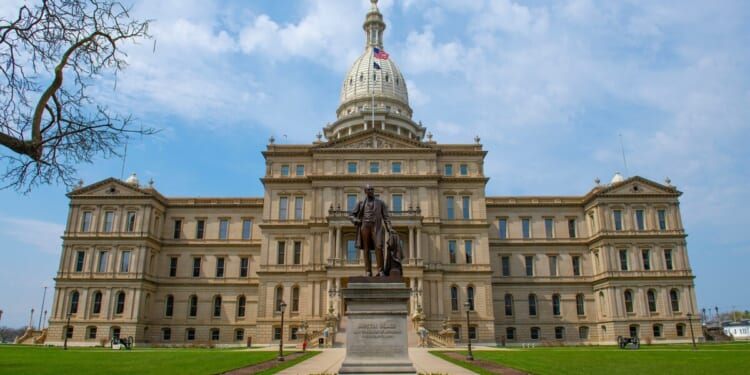Michigan lawmakers don’t have to agree on much each year, other than how to spend all the money that the state collects from its taxes. Partisans needed to compromise with each other to do this, since Republicans hold a majority in the House and there is a Democratic governor with a Democratic majority Senate. Both sides were going to have to give up something and get something in order to pass a budget. What they came up with has a number of positive features.
Lawmakers will likely get to the point where roads are fixed faster than they fall apart, and they mostly got there without raising taxes. They substituted the sales tax levied on fuel, which largely goes to schools, for a per-gallon tax on fuel, which goes to transportation purposes.
This and other changes increase funding for county roads by 36%, and increase spending on city and village roads by 31%. Michigan had been around replacement levels for road funding when Whitmer began in 2019. Disputes over how to increase spending led to little change in policy, but that has changed with this budget compromise. People will have to wait, however, for administrators to update projections to see how it will affect road quality in the future.
Interest groups have tried to use roads as an excuse to raise taxes, some for the roads and some for every other spending area. And lawmakers raised marijuana taxes and earmarked the money to roads. But the bulk of the increase was by making roads a priority for the money they already had.
School interest groups were worried that the road deal would mean less spending on schools, but schools got a boost in the budget, too. Whether that leads to improvement in the education system’s performance is a different question. It would be nice if lawmakers could buy their way to better schools, but it’s unfortunately more complicated than that.
A reason lawmakers can afford to spend more on roads and schools and the rest of their priorities, was because they agreed to stop funding the state’s largest business subsidy program. The Strategic Outreach and Attraction Reserve fund allowed lawmakers to give whatever business lawmakers wanted however much they’d want to hand out, limited only by how much the fund had in it.
Lawmakers made deals to spend $1.45 billion for businesses to create 14,779 jobs. Yet $720 million has been spent without creating any jobs at the companies, according to the latest state report.
Part of the deal saw the end of the $500 million that had been going to this fund. That’s good because programs like that are ineffective at creating jobs and unfair to the taxpayers who have to pay for the subsidies. Lawmakers found better ways to spend that money.
Unfortunately, some lawmakers have already discussed creating a new business subsidy program now that they’re no longer funding this one.
Legislators also went in the right direction over specific grants directed by individual legislators, where leadership gives discretion to individual members to fund projects, typically handing money to local governments and nonprofit organizations in their districts. Lawmakers authorized around $2 billion two years ago and $1 billion last year. This year they only approved $360 million. Still too much, but less than the past few years.
They also were able to get two-thirds approval for these legislative earmarks, a constitutional requirement that they had been unable to get in the previous two years. It’s also some spending that we’re challenging in court.
Budgets always prioritize based on limited revenue, and divided government gave people with different ideas a need to compromise with each other. They agreed on some good policy, even if no one got everything they wanted.











